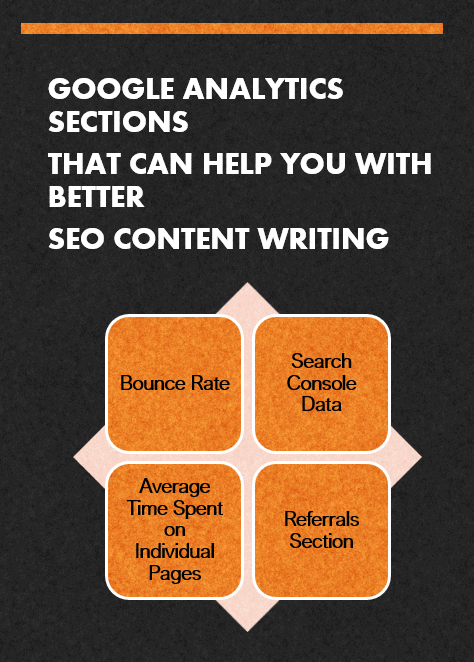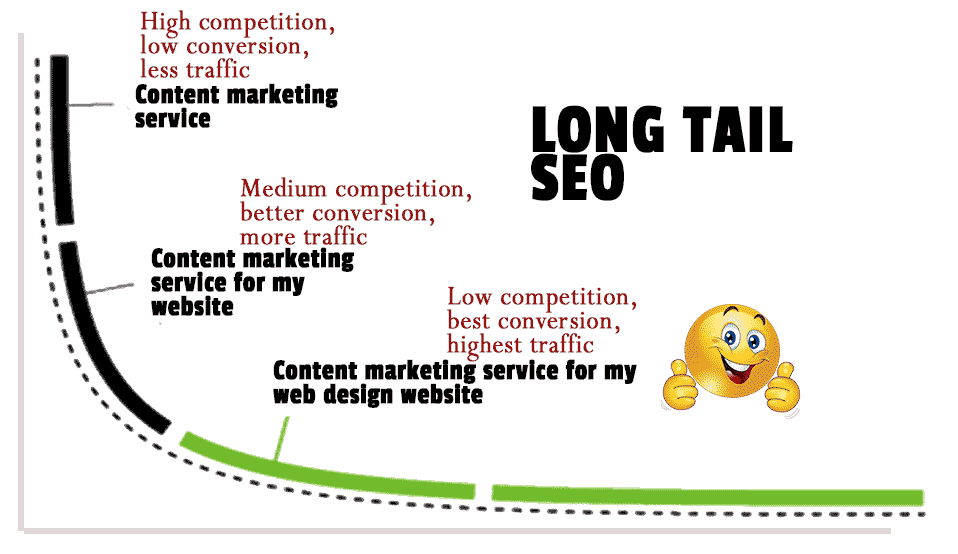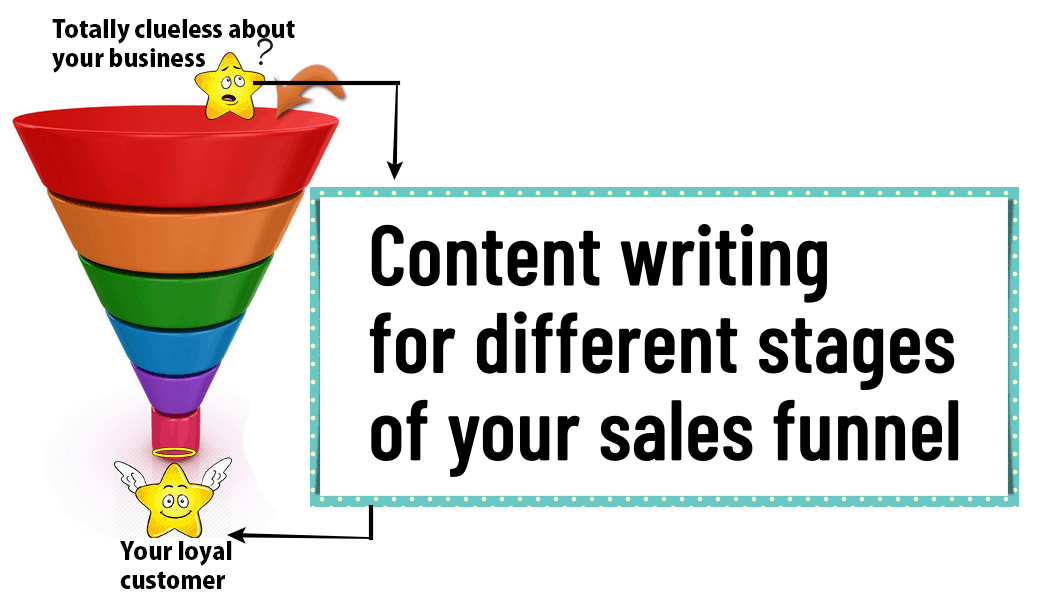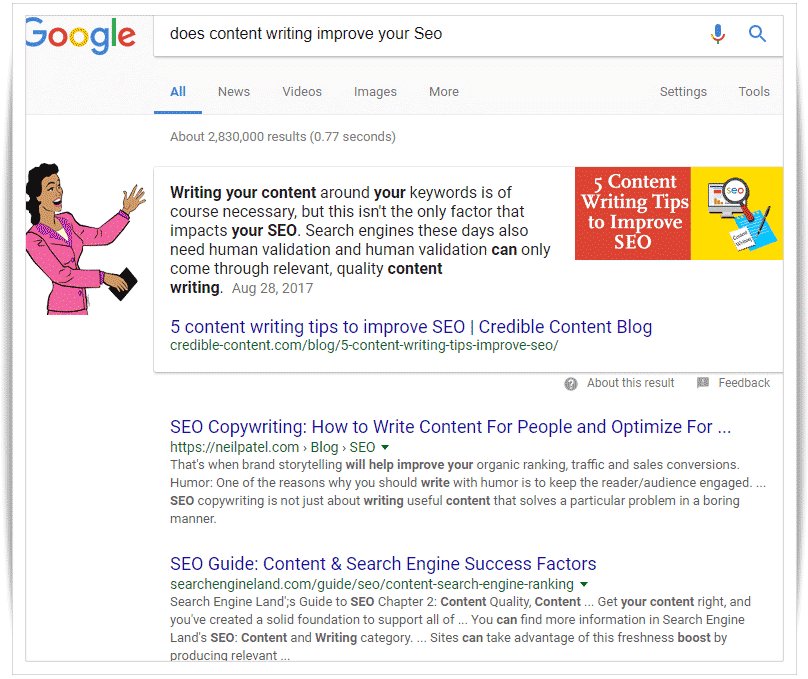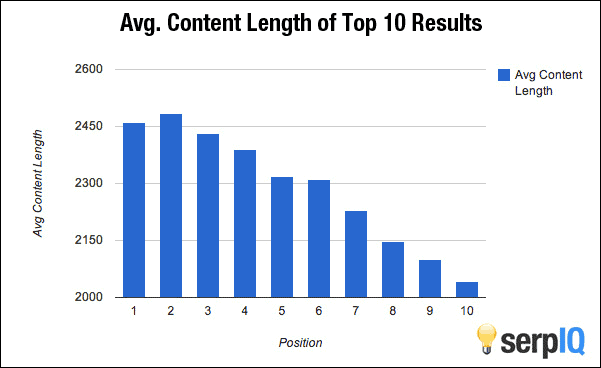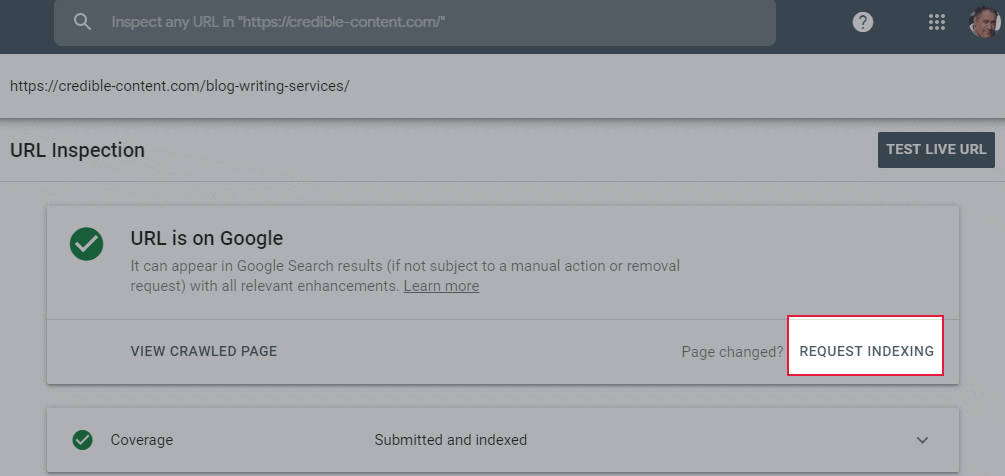Google Analytics is mostly a free tool. It has various premium tools, but you can make the most of it even in the free version.
You can use the insights given in Google Analytics for SEO content writing.
All you have to do is, add your website link to your Google Analytics account as a “property” and then copy/paste the analytics tracking JavaScript in the header or footer of your website template. Google Analytics is free. If you have a Google account (which pretty much everyone does), then you can access Google Analytics.
Before you proceed, whether you want to write SEO content or not, implement the Google Analytics code on your website so that the service can start tracking and compiling your data and you have some usable insights in a few weeks/months.
You may also like to read 10 tips on how to write SEO content for your website.
Finished? Let’s proceed now.
One of the most compelling reasons that you should use Google Analytics to track your traffic patterns is the fact that it is by Google, the very search engine you would like to improve your search engine rankings for. Hence, it has designed and developed the tool so that you can use it to write, publish and provide better content to the search engine.
Using your bounce rate insights to write SEO content
When you start tracking your website traffic, you will notice that you are not writing your SEO content in complete darkness, just based on guesswork. Google Analytics gives you a solid data on how people are consuming your content and how they are reacting to it, which is very important.
You may also like to read How to improve your bounce rate with quality content writing.
For example, Google Analytics gives you the bounce rate of not just your entire website, but also of individual links and blog posts. If you go through these stats, you will know on which page people leave (bounce off) your website the most and then you can make changes on that page in an effort to bring your bounce rate down.
Your bounce rate is the number of people who leave your website immediately after arriving on a particular link divided by the total number of people coming to your website multiplied by 100.
If there are multiple webpages and blog posts with high bounce rate, it means you are not writing and publishing content people are looking for.
There are primarily 2 reasons why people might be leaving your website so fast:
- You cannot hook your readers into your writing and hence, you need to improve on that front.
- You are not publishing content people are looking for and hence, when they found irrelevant content, they immediately leave.
Whatever is the case, you can audit your content, make appropriate changes and then resubmit your link to Google and wait for a couple of weeks. The new data insights will tell you whether your bounce rate has come down, remained the same, or has worsened.
What changes can you make to your content (through writing) to decrease your bounce rate?
- Make sure you deliver what you promise.
- Write your content exactly according to the title of your web page or blog post (the promise that you make in your search engine appearance).
- Make your writing easier to read.
- Learn to inform and entice.
- Write short paragraph, preferably, a single thought in a single paragraph.
- Organize your thoughts in bullet points wherever possible.
- Write in a conversational manner.
- Avoid using words your target audience may not understand.
- Link to other important pages and blog posts on your website and encourage visitors to click them.
You may also like to read 10 fundamental qualities of effective SEO content writing.
Using the search console data to streamline your SEO content writing
The search console insights tell you which search terms and keywords people are mostly using when they find your website.
You may also like to read Importance of keyword research before content writing.
These may not be necessarily the keywords you are aiming for. These are the keywords and search terms your website is ACTUALLY getting traffic for.
Unless you’re using a specialized SEO content writing tool it may be difficult for you to write content exactly the way your audience searches. Through the search console data, you can find out
- If you’re attracting traffic for wrong keywords and search terms.
- If you’re attracting traffic for related keywords and search terms and thus, you can ride on the popularity of these mistaken keywords and search terms to improve search engine rankings for your desired keywords.
Average time spent on individual pages
This section of Google Analytics tells you how much time people spend on your pages and blog posts. If they’re spending very little time – just a few seconds – then you know that they’re not reading your content. They are just skipping it.
Go through those links and try to find out why people are not reading it. Are your title and content mismatched? Do you have lots of distractions? Is your writing unreadable? Is it totally uninspiring?
Try to improve your writing. If your paragraphs are very long, divide them into shorter paragraphs.
Remove the fluff because most of your readers will be put off or get bored.
Try to explain some of the intricate concepts using images, if possible. Remember that the important thing is that people stay on the web page or blog post they have arrived on.
The “Average time” metrics tell you on which page you should spend more effort. For example, there is no use putting your energies into improving webpages on which people spend ample amount of time.
On the other hand, if you notice that there are some very important webpages where people must spend more time but are not, try improving them. Try various combinations.
This may take some time, but don’t worry. SEO takes time and effort.
Using the Referrals section data to improve your SEO
In Google Analytics, on the left-hand sidebar, there is a section called “Acquisition”. If you click on “All Traffic” and then on “Channels” you can find various websites that refer traffic to your website.
You may observe social media channels and independent websites linking to your various webpages and blog posts. Are very few people linking to you? If this is the case, you can start making changes to your existing content to make sure that it is link worthy.
Why do people link to your content? It’s because you offer something valuable, something that their own visitors may find useful.
For example, if you have written well about a subject or topic, instead of rewriting it, if other Webmasters find your writing useful, they would rather link to you. But you have to find whether the content that you have written is link worthy or not. Be ruthless and objective when evaluating your content for this purpose, just the way other publishers would be.
Conclusion
The basic idea behind using Google Analytics for better SEO content writing is to find out what you’re doing and what impact your SEO writing is having on the nature of traffic you are getting.
If you’re trying to target our region, Google Analytics can tell you whether you are drawing traffic from that region or not and if not, you can make changes to your content.
If you are targeting certain keywords, Google Analytics can tell you if you are drawing traffic for those keywords or not. Otherwise, even if you’re getting lots of traffic but the traffic does not originate for the desired keywords, it is not useful.
To be able to use Google Analytics, as described above, you will first need to install the script to your website and even after that, you will need to give it a couple of months before it can gather enough data to present it in the form of usable insight that you can further use for better SEO content writing.


